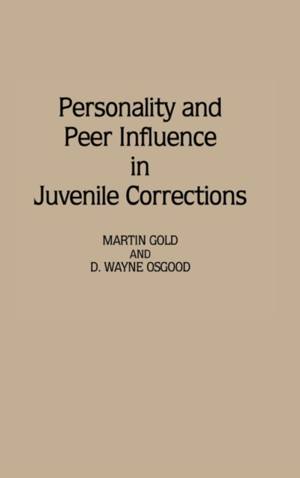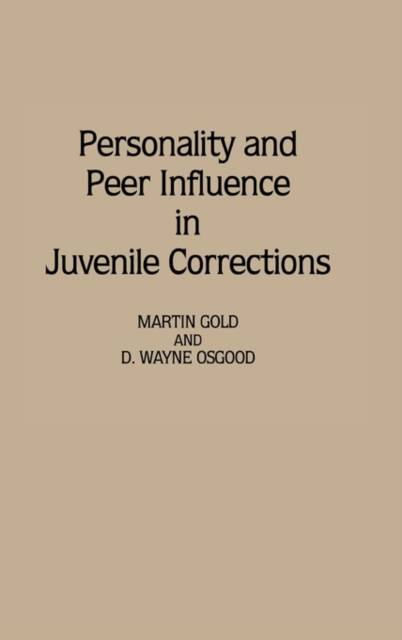
- Afhalen na 1 uur in een winkel met voorraad
- Gratis thuislevering in België vanaf € 30
- Ruim aanbod met 7 miljoen producten
- Afhalen na 1 uur in een winkel met voorraad
- Gratis thuislevering in België vanaf € 30
- Ruim aanbod met 7 miljoen producten
Omschrijving
This is an innovative study of 300 delinquent boys in a medium security institution and after their release. This longitudinal field experiment shows how peers affect the rehabilitation of different group members, how staff use those influences to lead to prosocial change after release from the institution, and how different behavior, values, and feelings improved. This well-designed research has broad implications for use in graduate courses in sociology, criminology and penology, social and personality psychology, and group dynamics. The book is equally useful to administrators and policymakers dealing with delinquents and individuals with behavior problems.
The field experiment was devised with both practical and theoretical purposes in mind, to develop corrective programs for delinquent youth and to test social science hypotheses in the context of a longitudinal experimental research design. The study presents a typology of delinquent boys that guides differential treatment, focuses on peer group and staff influences, and identifies factors in residential treatment and in the open community that facilitate prosocial reentry. The findings test hypotheses about group and staff impact on anti-social behavior within the institution and after release.Specificaties
Betrokkenen
- Auteur(s):
- Uitgeverij:
Inhoud
- Aantal bladzijden:
- 256
- Taal:
- Engels
- Reeks:
Eigenschappen
- Productcode (EAN):
- 9780313279706
- Verschijningsdatum:
- 17/09/1992
- Uitvoering:
- Hardcover
- Formaat:
- Genaaid
- Afmetingen:
- 156 mm x 234 mm
- Gewicht:
- 530 g

Alleen bij Standaard Boekhandel
Beoordelingen
We publiceren alleen reviews die voldoen aan de voorwaarden voor reviews. Bekijk onze voorwaarden voor reviews.











